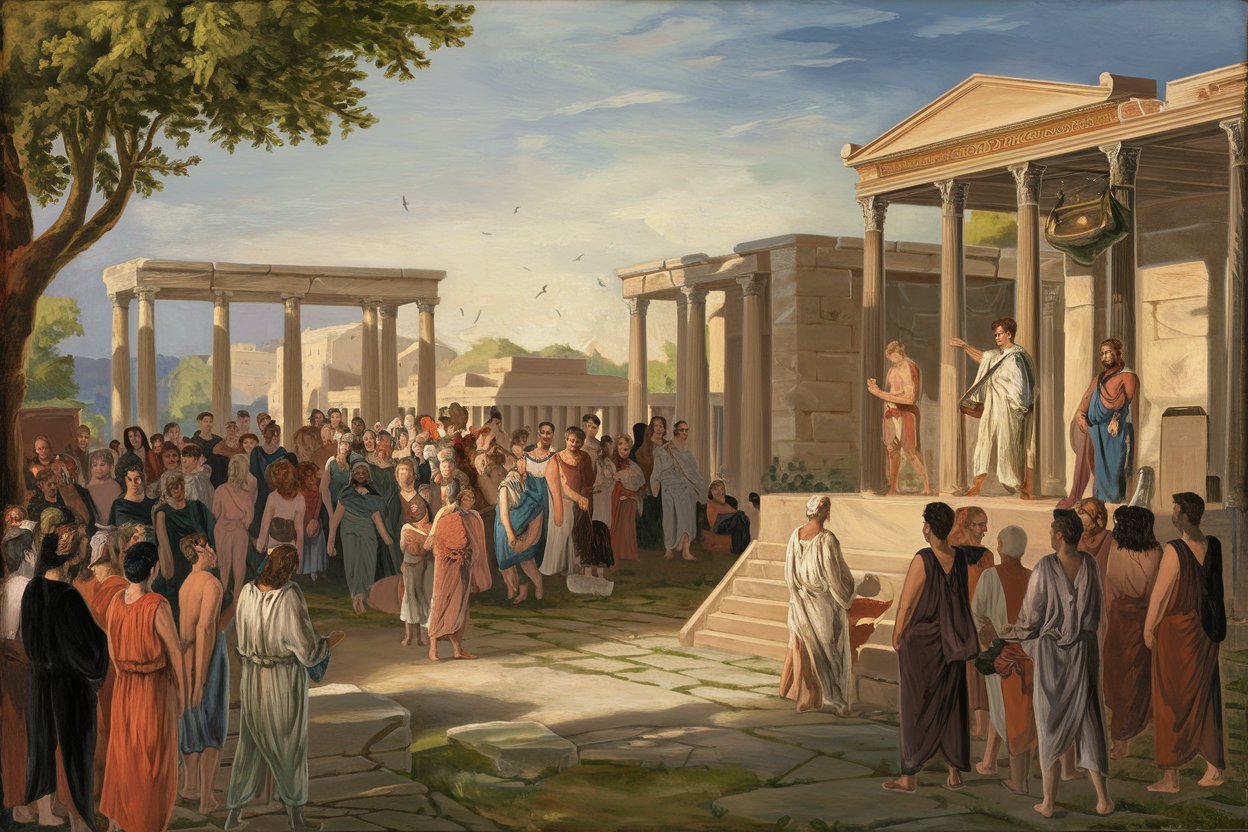History
1. Ancient Roots of Democracy
- Ancient Greece: Democracy originated in ancient Greece, particularly in Athens around the 5th century BCE. The word “democracy” comes from the Greek words “demos” (people) and “kratos” (power), meaning “rule by the people.” Athenian democracy was direct, with citizens participating in decision-making through assemblies and voting on laws. However, it was limited as only free male citizens could participate; women, slaves, and non-citizens were excluded.
- Ancient Rome: The Roman Republic (509-27 BCE) further developed democratic principles through a mixed government system that combined elements of democracy, oligarchy, and monarchy. The Senate represented the aristocracy, while assemblies allowed the common people (plebeians) to have a say, though the system was still dominated by the elite.
2. The Middle Ages and Renaissance
- Magna Carta (1215): In medieval England, the Magna Carta was a pivotal document that limited the power of the monarchy and established the principle that the king was subject to the law. It laid the groundwork for future constitutional development, including the rights of individuals and the concept of representative government.
- Renaissance and Enlightenment: The Renaissance (14th-17th centuries) and Enlightenment (17th-18th centuries) periods emphasized reason, individualism, and skepticism of authority, fostering ideas about human rights and governance. Philosophers like John Locke, Montesquieu, and Rousseau advanced ideas about natural rights, the separation of powers, and social contracts, influencing modern democratic thought.
3. Modern Democratic Development
- American Revolution (1775-1783): The American Revolution was a turning point, leading to the establishment of the United States Constitution (1787) and the Bill of Rights (1791). These documents established a federal republic with a system of checks and balances and enshrined individual rights, greatly influencing the global democratic movement.
- French Revolution (1789-1799): The French Revolution further propelled democratic ideals by challenging absolute monarchy and aristocratic privilege, advocating for liberty, equality, and fraternity. It led to the Declaration of the Rights of Man and of the Citizen, which became a cornerstone of modern human rights.
- 19th and 20th Centuries: The 19th century saw the spread of democratic reforms across Europe and the Americas, with movements for suffrage, labor rights, and the abolition of slavery. The 20th century saw decolonization, the expansion of voting rights, and the establishment of democratic institutions worldwide, though challenged by authoritarian regimes.
4. Contemporary Democratic Advancements
- Post-World War II Era: After World War II, many nations adopted democratic systems, influenced by the United Nations and international human rights declarations. The Cold War era saw a contest between democratic and communist ideologies, leading to significant democratic transitions in Eastern Europe after the fall of the Soviet Union.
- 21st Century Challenges and Expansions: In recent years, democracies have faced challenges such as political polarization, misinformation, and threats to civil liberties. However, technological advancements have also enabled greater citizen participation through social media and digital platforms, pushing democratic boundaries in new directions.
Democracy continues to evolve, reflecting the ongoing struggle to balance governance, individual rights, and the common good in an increasingly interconnected world.




